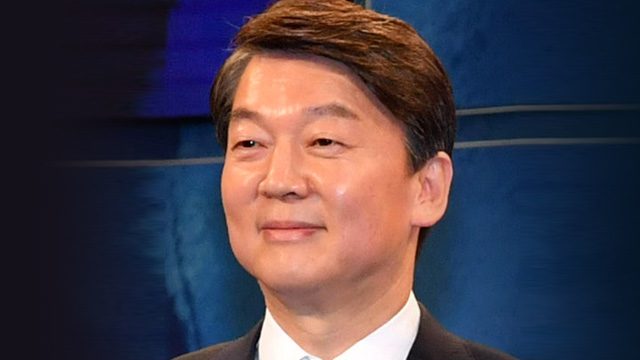SUMMARY
This is AI generated summarization, which may have errors. For context, always refer to the full article.

SEOUL, South Korea – One of the main challengers to the frontrunner in South Korea’s presidential race is an IT multi-millionaire who has given away much of his fortune and is now looking to break the country’s political mold.
Ahn Cheol-Soo was pursuing medical studies at the prestigious Seoul National University in 1988 when his computer became infected with Brain, regarded as the first widespread technological virus.
Burning the midnight oil, he developed a cure for the digital disease and handed it out to his colleagues.
For the next 7 years he doubled as a doctor and professor of medicine, and a developer of anti-virus software, until he founded his eponymous start-up AhnLab.
It went on to become the leading provider of anti-virus programs – still distributed free to individual users – in one of the world’s most wired countries, and now has some 1,000 employees and a market capitalization of more than $500 million.
Ahn – who said he turned down a $10 million offer for the firm when it was two years old because he felt “unable to turn back on my employees” – still owns nearly 20%, even after giving away half his holdings in 2011 to a foundation for the education of students from low-income families.
He has been compared in South Korea to Bill Gates for his technological entrepreneurship and philanthropy, but has more overtly political ambitions than the Microsoft founder.
After stepping down from AhnLab he returned to academia, then decided to seek elected office, toying with runs for the Seoul mayoralty in 2011 and the presidency the following year, vowing to change a political landscape tarnished with regionalism, factional feuds and corruption.
In the event Ahn pulled out of both contests, instead winning a seat in parliament as an independent at a by-election in 2013.
With a fortune of his own Ahn presents himself as above the graft that has mired South Korean politics for decades – two former presidents have been jailed and ousted leader Park Geun-Hye is awaiting trial, while another killed himself after being questioned.
“I would create the cleanest-ever government free of corruption,” he said on the campaign trail. “I am a self-made man and therefore I am not indebted to anyone and there is no need for me to pay anyone back with favors.”
‘Animals in a zoo’
In parliament, Ahn joined the main opposition Democrat Party, but broke away last year to create his own, more centrist People’s Party.
Despite its fledging status it came a creditable 3rd in legislative elections that April, including securing second place in the proportional-representation party list section of the vote.
Ahn, 55, has sought to place himself in the center of the political spectrum, appealing to both voters who want change, and disaffected conservatives who have been repelled by the scandal that brought down Park but distrust left-leaning front-runner Moon Jae-In.
At one point last month the two were polling almost level.
But Ahn has seen his support erode after poor performances in television debates, with a lack of a common touch and an academic style of speech disconnecting him from ordinary voters.
“I’m a conservative in security issues and a reformist in economic affairs”, Ahn says.
He would support a strong military build-up while pushing through with international sanctions and pressure on nuclear-armed North Korea to compel it to give up its weapons.
But his experience in business has not made him a fan of the South’s economic structure, which is dominated by family-oriented business conglomerates known as “chaebols”.
They confine small and medium-sized companies like his own to an “exploitative” situation like “animals in a zoo”, he says, suffocating growth and job creation.
If elected, his government would enhance corporate transparency and curb the power of their founding families, he promises, while making it easier for others to follow in his footsteps. – Rappler.com
Add a comment
How does this make you feel?
There are no comments yet. Add your comment to start the conversation.